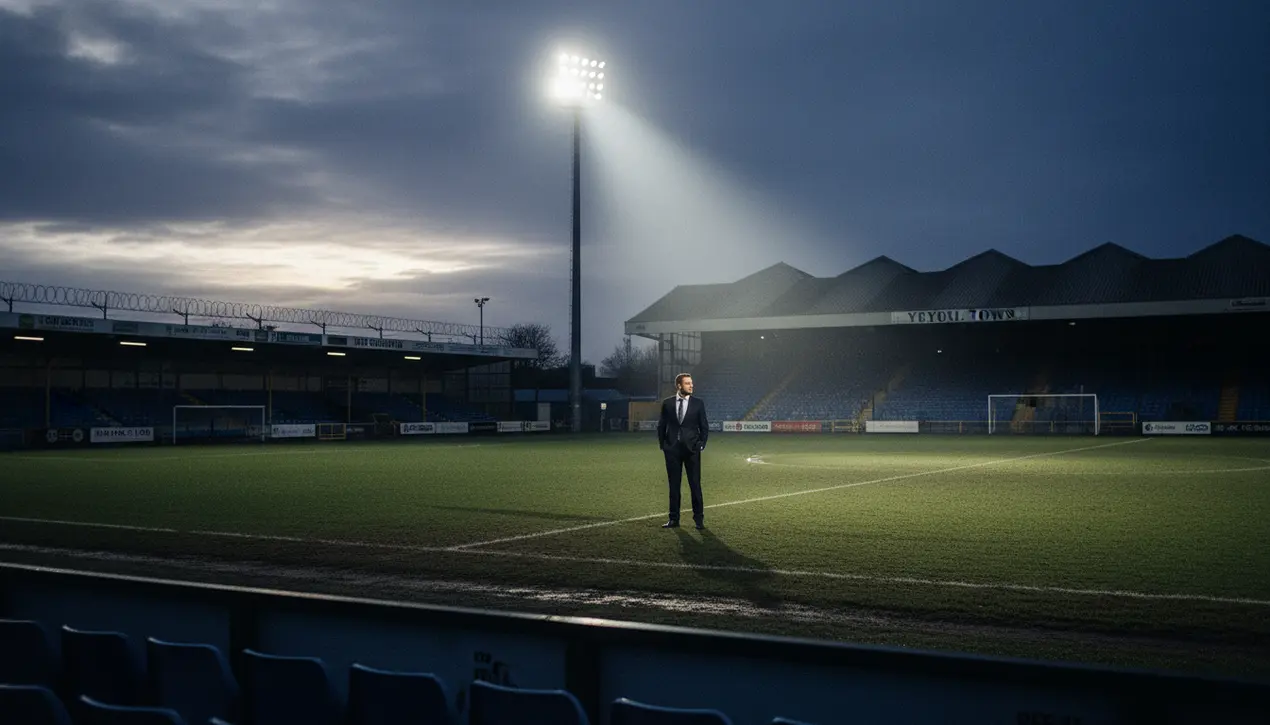
SportfootballTransfer Market
Yeovil aim to buy back Huish Park by end of season
JA
Jack Turner
3 hours ago7 min read1 comments
For Yeovil Town, a club whose recent history reads like a cautionary tale of English football's financial precipice, the potential repurchase of Huish Park represents far more than a simple property transaction; it is a symbolic homecoming, a foundational step toward reclaiming the club's very soul. Owner Prabhu Srinivasan, whose Inflection Holdings completed a takeover of the National League outfit in May, has made this mission a 'major goal,' a clear and urgent priority aimed at reversing the 2022 decision that saw the ground and its surrounding 11 acres sold to South Somerset District Council for £2.8 million. That deal, initially approved under former owner Scott Priestnall, was a classic survival move for a club navigating choppy financial waters, creating immediate liquidity but mortgaging a piece of its long-term identity in the process.Srinivasan's proactive engagement with the council, stating his hope to have the stadium 'in our fold by the end of the season,' signals a decisive shift in strategy, one that echoes the long-term, asset-based philosophies of more sustainably run clubs, drawing a stark contrast to the short-termism that has plagued so many in the non-league pyramid. The ambition, however, extends far beyond the touchlines.Srinivasan's vision to transform Huish Park into a 'flagship music' venue every summer, leveraging corporate partnerships to maximize revenue through live events, is a pragmatic recognition that modern football clubs, especially at this level, must be multifaceted entertainment businesses. 'While football is the anchor, we can use this space to do a lot more,' he told BBC Radio Somerset, a sentiment that aligns with the forward-thinking, data-driven approach of clubs that successfully diversify their income streams to fund competitive ambitions.Yet, this off-field optimism exists in stark juxtaposition to the stark realities on the pitch, where Yeovil languish in 18th place, winless in six league matches and mired in a managerial crisis that has seen three different men in the dugout in less than three months. The saga of Mark Cooper's sacking, Danny Webb's abrupt 10-day tenure ending for 'personal reasons'—a departure that Srinivasan admitted 'irked' him and the entire organization—and the subsequent appointment of Richard Dryden for the remainder of the season, is the kind of instability that analytics gurus would flag as a primary predictor of prolonged struggle.It creates a fascinating dichotomy: a front office meticulously planning a sustainable future built on asset ownership and commercial growth, while the football operations resemble a leaky vessel desperately bailing water. For Srinivasan, the challenge is as monumental as it is clear.Securing Huish Park is the easy part, the foundational block. The far more difficult task, the one that truly defines a club's legacy, is building a footballing structure atop it that is equally stable, competitive, and worthy of the community it represents. The success of this dual-track approach will determine whether Yeovil Town's story becomes one of resilient revival or merely a brief interlude of hope before another cycle of decline.
#featured
#Yeovil Town
#Huish Park
#stadium buyback
#club ownership
#live events
#financial sustainability
#management changes
Stay Informed. Act Smarter.
Get weekly highlights, major headlines, and expert insights — then put your knowledge to work in our live prediction markets.
Related News
Comments
Loading comments...
© 2025 Outpoll Service LTD. All rights reserved.